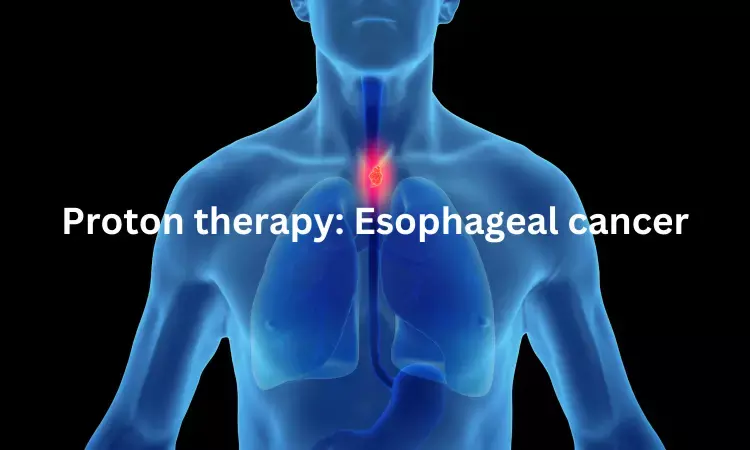- Home
- Medical news & Guidelines
- Anesthesiology
- Cardiology and CTVS
- Critical Care
- Dentistry
- Dermatology
- Diabetes and Endocrinology
- ENT
- Gastroenterology
- Medicine
- Nephrology
- Neurology
- Obstretics-Gynaecology
- Oncology
- Ophthalmology
- Orthopaedics
- Pediatrics-Neonatology
- Psychiatry
- Pulmonology
- Radiology
- Surgery
- Urology
- Laboratory Medicine
- Diet
- Nursing
- Paramedical
- Physiotherapy
- Health news
- Fact Check
- Bone Health Fact Check
- Brain Health Fact Check
- Cancer Related Fact Check
- Child Care Fact Check
- Dental and oral health fact check
- Diabetes and metabolic health fact check
- Diet and Nutrition Fact Check
- Eye and ENT Care Fact Check
- Fitness fact check
- Gut health fact check
- Heart health fact check
- Kidney health fact check
- Medical education fact check
- Men's health fact check
- Respiratory fact check
- Skin and hair care fact check
- Vaccine and Immunization fact check
- Women's health fact check
- AYUSH
- State News
- Andaman and Nicobar Islands
- Andhra Pradesh
- Arunachal Pradesh
- Assam
- Bihar
- Chandigarh
- Chattisgarh
- Dadra and Nagar Haveli
- Daman and Diu
- Delhi
- Goa
- Gujarat
- Haryana
- Himachal Pradesh
- Jammu & Kashmir
- Jharkhand
- Karnataka
- Kerala
- Ladakh
- Lakshadweep
- Madhya Pradesh
- Maharashtra
- Manipur
- Meghalaya
- Mizoram
- Nagaland
- Odisha
- Puducherry
- Punjab
- Rajasthan
- Sikkim
- Tamil Nadu
- Telangana
- Tripura
- Uttar Pradesh
- Uttrakhand
- West Bengal
- Medical Education
- Industry
Proton therapy highly effective in esophageal cancer compared to proton therapy: JAMA

Esophageal cancer is a tremendous challenge to global health and is potentially reported to be one of the malignant tumors of the digestive tract. It is known to be the sixth leading cause of cancer-related death worldwide.
A recent study in JAMA Network aimed to evauate whether proton was associated with better efficacy and safety outcomes, including dosimetric, prognosis, and toxic effects outcomes, compared with photon therapy and to evaluate the efficacy and safety of proton therapy singly. These findings suggest that proton therapy may be more effective and safer than photon therapy for patients with esophageal cancer.
The study reports meta-analysis including 45 studies, proton therapy was associated with significantly reduced irradiation doses to organs at risk, and the incidence of grade 2 or higher radiation pneumonitis and pericardial effusion and grade 4 or higher lymphocytopenia. Photon therapy was associated with poor overall survival [OS], progression-free survival [PFS], compared with proton therapy.
Researchers conducted a systematic search of PubMed, Embase, the Cochrane Library, Web of Science, SinoMed, and China National Knowledge Infrastructure databases was conducted for articles published through November 25, 2021, and updated to March 25, 2023. For the comparison of proton and photon therapy, studies including dosimetric, prognosis, and associated toxic effects outcomes were included. The separate evaluation of proton therapy evaluated the same metrics. If I2 was greater than 50%, the random-effects model was selected. This meta-analysis is reported following the Preferred Reporting Items for Systematic Reviews and Meta-analyses (PRISMA) reporting guideline.
They looked for organs at risk (OARs) dosimetric outcomes, prognosis (overall survival [OS], progression-free survival [PFS], and objective response rate [ORR]), and radiation-related toxic effects.
The key findings of the study are
• A total of 45 studies were included in the meta-analysis. For dosimetric analysis, proton therapy was associated with significantly reduced OARs dose.
• Meta-analysis showed that photon therapy was associated with poor OS (hazard ratio [HR], 1.31; 95% CI, 1.07-1.61; I2 = 11%), but no difference in PFS was observed.
• Subgroup analysis showed worse OS (HR, 1.42; 95% CI, 1.14-1.78; I2 = 34%) and PFS (HR, 1.48; 95% CI, 1.06-2.08; I2 = 7%) in the radical therapy group with photon therapy.
• The pathological complete response rate was similar between groups. Proton therapy was associated with significantly decreased grade 2 or higher radiation pneumonitis and pericardial effusion, and grade 4 or higher lymphocytopenia.
• Single-rate analysis of proton therapy found 89% OS and 65% PFS at 1 year, 71% OS and 56% PFS at 2 years, 63% OS and 48% PFS at 3 years, and 56% OS and 42% PFS at 5 years.
• The incidence of grade 2 or higher radiation esophagitis was 50%, grade 2 or higher radiation pneumonitis was 2%, grade 2 or higher pleural effusion was 4%, grade 2 or higher pericardial effusion was 3%, grade 3 or higher radiation esophagitis was 8%, and grade 4 or higher lymphocytopenia was 17%.
Researchers concluded that “In this meta-analysis, proton therapy was associated with reduced OARs doses and toxic effects and improved prognosis compared with photon therapy for esophageal cancer, but caution is warranted. In the future, these findings should be further validated in randomized clinical trials.”
Reference: Zhou P, Du Y, Zhang Y, et al. Efficacy and Safety in Proton Therapy and Photon Therapy for Patients With Esophageal Cancer: A Meta-Analysis. JAMA Netw Open. 2023;6(8):e2328136. doi:10.1001/jamanetworkopen.2023.28136
MSc. Neuroscience
Niveditha Subramani a MSc. Neuroscience (Faculty of Medicine) graduate from University of Madras, Chennai. Ambitious in Neuro research having worked in motor diseases and neuron apoptosis is interested in more of new upcoming research and their advancement in field of medicine. She has an engrossed skill towards writing and her roles at Medical dialogue include Sr. Content writer. Her news covers new discoveries and updates in field of medicine. She can be reached at editorial@medicaldialogues.in
Dr Kamal Kant Kohli-MBBS, DTCD- a chest specialist with more than 30 years of practice and a flair for writing clinical articles, Dr Kamal Kant Kohli joined Medical Dialogues as a Chief Editor of Medical News. Besides writing articles, as an editor, he proofreads and verifies all the medical content published on Medical Dialogues including those coming from journals, studies,medical conferences,guidelines etc. Email: drkohli@medicaldialogues.in. Contact no. 011-43720751


